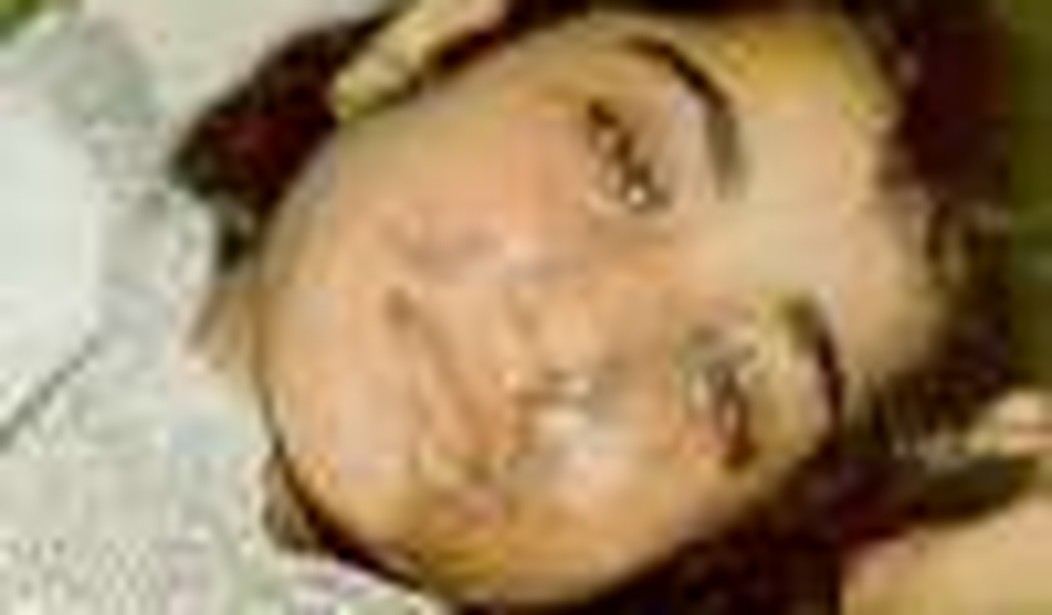When thousands of anti-war demonstrators take to the streets today to protest the fifth anniversary of the Iraq war, you can expect there to be countless signs decrying Bush as Satan, claiming that the U.S. has committed war crimes, protesting that Saddam Hussein’s reign of terror was unjustly brought to an end.
But you’ll likely be hard-pressed to find any demonstrator at these events solemnly marking the 20th anniversary of a genocidal event that defined the Baathist regime’s countless atrocities. I dare one protester who claims to be marching in the name of peace and humanity to carry a large sign reading “Remember Halabja.”
Being no stranger to crashing war protests, I can bet that if you held a poster bearing one of the infamous images of a man who fell and died at the base of a home’s steps clutching an infant whose mouth was frozen in a vain gasp for air, or the pile of bodies in traditional colorful clothing strewn across an otherwise verdant hill, most demonstrators would assume the grisly images are products of the American war machine. They wouldn’t like to hear that these murders were committed by the dictator we deposed.
On March 16, 1988, Iraqi warplanes bombed the Kurdish town of Halabja with chemical weapons including sarin and mustard gas, targeting civilians as part of the Anfal campaign to rid Iraq of its Kurds. Five thousand — three-quarters of them women and children — died from the chemical cocktail. Children trying to rush home fell in the street, while the insidious gasses claimed those who cowered in basements from what they thought was a traditional bombardment. Thousands were left with chemical burns, blindness, cancers, birth defects, etc.
The Halabja attack was, in Josef Mengele fashion, an experiment to determine which of the various chemical agents worked best on the population, where were the best strategic places to drop the poisonous canisters, where victims would fall and how many. “These were field tests, an experiment on a town,” Iraqi defector Khidhir Hamza, the former director of Saddam’s nuclear-weapons program, told then-New Yorker reporter Jeffrey Goldberg in 2002. “The doctors were given sheets with grids on them, and they had to answer questions such as ‘How far are the dead from the canisters?'”
Ali Hassan al-Majid, aka Saddam’s cousin and the infamous “Chemical Ali,” could hang any day for orchestrating the Anfal campaign, in which 4,000 villages in Iraqi Kurdistan were destroyed, 250 towns were attacked with chemical weapons, and tens of thousands of Kurds were summarily executed or disappeared for an estimated, overall death toll of more than 180,000. When he goes to the gallows, we’ll likely hear the same shtick over whether he received a fair trial, or whether the Sunni’s execution — approved by a council of Kurdish President Jalal Talabani and the Sunni and Shiite vice presidents — will stoke sectarian tensions.
But to say the man speaks for himself is an understatement. Recordings from 1988, in which Ali is speaking to other Baath officials, show maniacal ethnic cleansing. “…We continued the deportations,” Ali said. “I told the mustashars that they might say that they like their villages and that they won’t leave. I said I cannot let your village stay because I will attack it with chemical weapons. Then you and your family will die. You must leave right now. Because I cannot tell you the same day that I am going to attack with chemical weapons. I will kill them all with chemical weapons! Who is going to say anything? The international community? F**k them! The international community and those who listen to them.”
The government of Iraq just approved $6 million to help rebuild Halabja, but 20 years later the damage is still felt. A survey last year found that widows from the entire Anfal campaign make up 15 percent of the Iraqi Kurdistan population. Iraq also announced plans to sue unspecified international firms for supplying chemical-weapons materials to Saddam’s regime; a Dutch businessman is already behind bars in the Netherlands for supplying some of the Halabja gas ingredients.
“We have known for a long time that the Iraqi ruler is a mass murderer,” Elie Wiesel wrote in the Los Angeles Times five years ago. “In the late 1980s, he ordered tens of thousands of his own citizens gassed to death. In 1990, he invaded Kuwait. After his defeat, he set its oil fields on fire, thus causing the worst ecological disaster in history. He also launched Scud missiles on Israel, which was not a participant in that war. He should have been indicted then for crimes against humanity. Serbia’s Slobodan Milosevic was arrested and brought to trial for less.”
But as the war protesters take to the streets today, they won’t be terribly concerned with the genocide that should have made the international community bring Saddam to his knees. While busy painting the U.S. as the cruelest of warmongers, they won’t remember Halabja. To do so would give others the impression that taking out Saddam was, indeed, completely justified.
Bridget Johnson (www.bridgetjohnson.org) is a columnist at the Los Angeles Daily News.









Join the conversation as a VIP Member